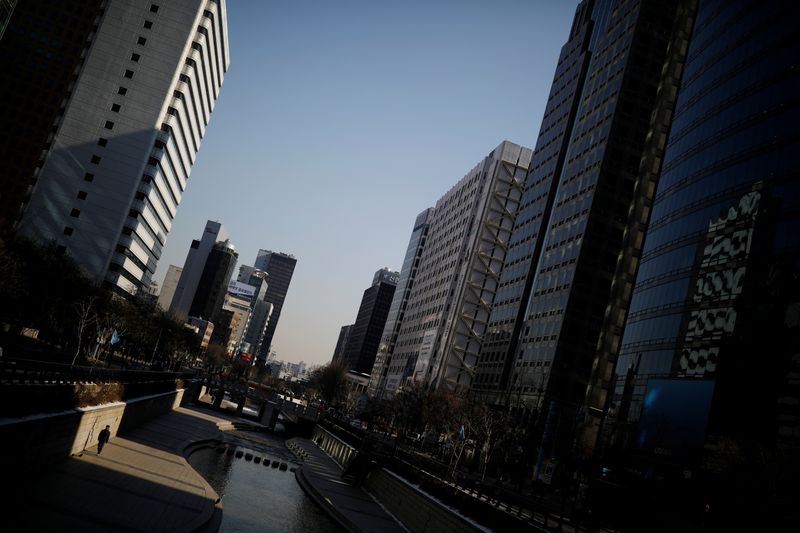S.Korea’s economy unexpectedly speeds up, pointing to more rate hikes
2022.07.26 06:10

FILE PHOTO: A man walks along the Cheonggye stream in central Seoul, South Korea January 25, 2017. REUTERS/Kim Hong-Ji
By Jihoon Lee and Choonsik Yoo
SEOUL (Reuters) -South Korean economic growth unexpectedly picked up in the second quarter as strong consumption on eased COVID-19 restrictions offset poor exports, supporting the case for further central bank interest rate hikes.
The Bank of Korea estimated on Tuesday gross domestic product for the April-June period rose 0.7% quarter-on-quarter, faster than the 0.6% growth in the first quarter and above a 0.4% rise tipped in a Reuters survey.
Economists said the upbeat data allowed the central bank, which this month delivered an unprecedented 50 basis-point rate hike, to continue tightening policy in coming months.
“The economy will inevitably slow due to prolonged inflation and cooling exports, but today’s solid readings are a good boost for the central bank seeing inflation as the prime risk for now,” said Chun Kyu-yeon, economist at Hana Financial Investment.
The BOK has raised the policy interest rate by a combined 1.75 percentage points to 2.25% from record-low 0.5% since August last year, with economists predicting rates to be at 2.75% by the end of this year. The bank holds its next policy meeting on Aug. 25.
Private consumption jumped 3.0%, the best in a year, after a 0.5% decline in the first quarter as the government in April removed almost all COVID-19 social-distancing restrictions.
The strong consumption comes despite the BOK’s aggressive series of interest rate hikes since August last year.
The economy also received a boost from increased government spending after the parliament approved a 62 trillion won ($47.33 billion) supplementary budget weeks after President Yoon Suk-yeol took office in early May.
However, exports and corporate spending on production facilities slumped amid a slowing Chinese economy and the fallout from a war in Ukraine as well as a global wave of monetary policy tightening to fight inflation.
Exports shrank 3.1% in the April-June period from the preceding quarter, the largest decline in two years. Capital investment dropped for a fourth consecutive quarter by 1.0% following a 3.9% contraction in the January-March period.
Asia’s fourth-largest economy grew 2.9% in the second quarter year-on-year, faster than analyst expectations for 2.5% growth but slower than 3.0% growth in the first quarter. ($1 = 1,309.8700 won)








